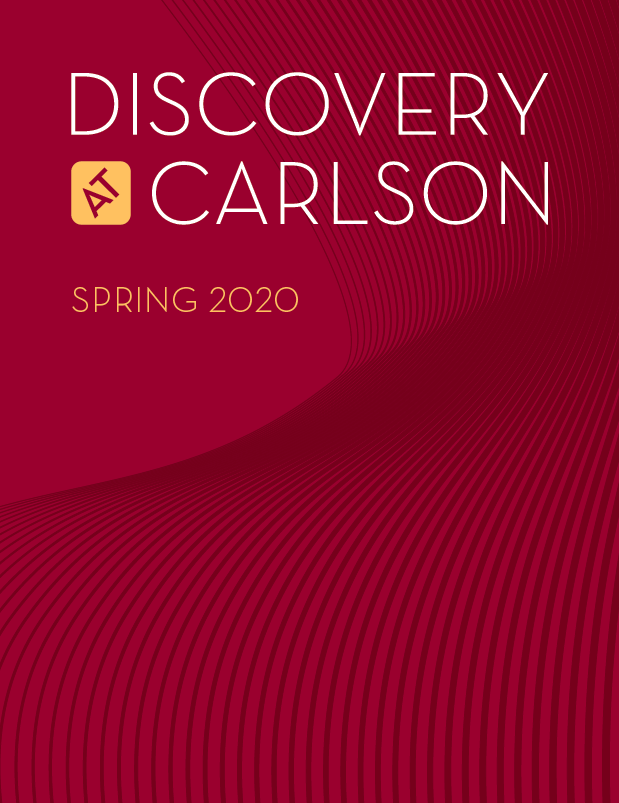
Alison Jing Xu and Akshay Rao: Why businesses spend more during presidential election years
Tuesday, May 5, 2020
U.S. companies ought to spend more money on advertising and business operations during years in which the country is picking a president, according to research from faculty members at the Carlson School.
The study, published in the Academy of Management Journal, is based in part on an analysis of 1,101 firms’ advertising spending between 1950 and 2011. Firms spent 3 percent more in election years than in non-election years—about $2.5 million, on average—compared to a control group of firms with headquarters outside the U.S.
Why? Lead author Alison Jing Xu says the onslaught of campaign advertising sees business managers unconsciously go through a mindset shift, making them more likely to spend.
“Every four years, U.S. citizens are exposed to a substantial amount of information—largely media advertising, as well as nationally-televised debates and seemingly incessant media commentary—that compares and contrasts presidential candidates, with the explicit goal of making you choose one candidate and take an action by voting for that candidate.”
Xu further explains that as a result, “managers at companies appear to adopt a ‘comparative mindset,’ disposing them to constantly compare options in many aspects of their lives, outside of just the presidential election.”
“We thought it would be interesting to look at how comparing political candidates and their policies during presidential elections may influence managers’ mindsets and affect managerial spending,” says Xu. To study this, in addition to the firm analysis, the authors conducted experiments too.
Changes in the purchase process
Throughout, they used the understanding that purchase decisions typically involve a three-step process: whether-to-buy, which-to-buy, and then purchase. But, Xu says that once in a ‘comparative mindset,’ that process changes.
“When a comparative mindset emerges, people skip the ‘whether-to-buy’ step. This is important because, in the whether-to-buy step, negative information plays a relatively important role. And, negative information might result in managers deciding to not buy at all. When the ‘whether-to buy’ step is skipped, managers start at the which-to-buy stage, meaning negative information plays a reduced role, because a decision to buy has already been made. As a consequence, managers buy more and spend more.”
In related lab experiments, the authors asked human resource managers to review possible training and development programs. One group was exposed to political ads and then asked to perform the review while the other group wasn’t. The findings were clear: those who made decisions after viewing comparative political ads were more likely to select one of the programs, and less likely to reject options altogether.
When a comparative mindset emerges, people skip the ‘whether-to-buy’ step.
Companies can address this shift
Joined by fellow Carlson School Professor and General Mills Chair in Marketing Akshay Rao as well as Christine Moorman, T. Austin Finch Sr. Professor of Business Administration at Duke University’s Fuqua School of Business and Fuqua Ph.D. graduate Vivian Yue Qin, the authors suggest a few ways for managers and companies to handle this mindset shift.
“First, managers must be aware of this occurring,” says Rao. “Second, deciding which options to reject (rather than which option to choose) at the which-to-buy step weakens the mindset’s impact by changing the decision frame and resurfacing the importance of negativity in decision making. And third, reminding managers that the option not to buy is always available helps, regardless of the stage in the process in which they find themselves. These strategies can be implemented by organizations in their organizational routines.”
The authors do caution that these effects, while robust, are likely not immune to external shocks. Thus, the temptation to infer that corporate spending will be relatively high in 2020 due to it being a Presidential year should be tempered by two obvious elements in the environment: a) the relatively low level of comparative political advertising, and b) the unknown impact of the 2019 Novel Coronavirus (COVID-19) on managerial decision making in light of supply chain disruptions and suppressed consumer demand.

